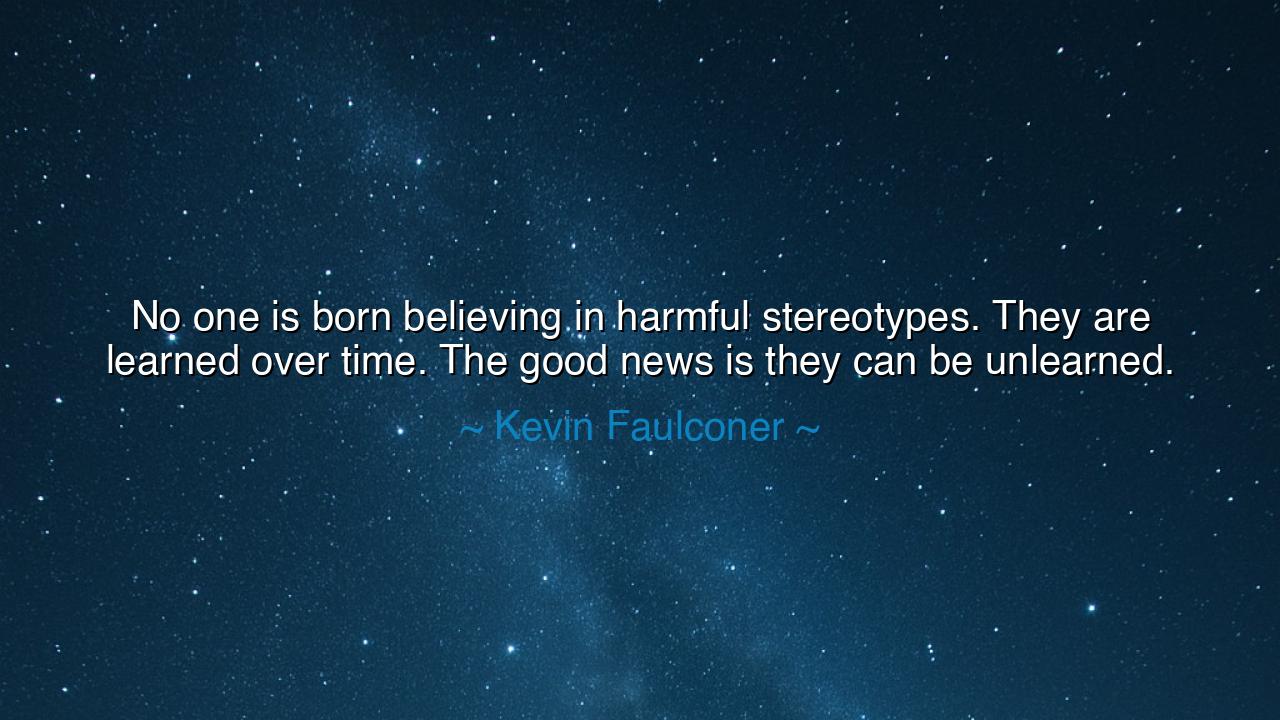
No one is born believing in harmful stereotypes. They are
No one is born believing in harmful stereotypes. They are learned over time. The good news is they can be unlearned.






Kevin Faulconer, in a spirit both practical and hopeful, once declared: “No one is born believing in harmful stereotypes. They are learned over time. The good news is they can be unlearned.” In this statement lies a truth as old as humanity yet vital for every new generation: that hatred is not a seed planted by nature, but a weed sown by culture, by ignorance, and by fear. And because it is learned, it is not eternal—it can be uprooted, cast aside, and replaced with the seeds of compassion and understanding.
The meaning of these words is that the human heart, at its birth, is pure and unmarked by division. A child does not come into the world despising another’s color, creed, or tongue. Such stereotypes—false beliefs that reduce and confine others—are taught by voices of prejudice, repeated by society until they shape thought and behavior. Yet just as they are taught, so too can they be challenged, broken, and unlearned. This truth offers hope: that the cycle of hatred is not fate, but choice.
History has given us bitter lessons of these learned stereotypes. In Nazi Germany, generations of children were taught to despise Jews, Roma, and others through propaganda, schools, and even children’s books. This teaching of falsehoods led to one of history’s greatest horrors, the Holocaust. Yet after the war, through education, remembrance, and the work of survivors telling their stories, many of those lies were dismantled, proving that what is learned can indeed be unlearned.
We also find a powerful example in the life of Nelson Mandela. Born into a world of apartheid, he witnessed how South Africans were taught to fear and hate one another across racial lines. But Mandela, through his years of suffering and reflection, came to embody the opposite truth—that people can unlearn hatred and replace it with reconciliation. His leadership in uniting a divided nation is proof that even entrenched stereotypes can be broken, and that forgiveness can rewrite the lessons of the past.
The lesson for us is clear: do not accept the chains of prejudice as natural or unchangeable. Recognize that harmful beliefs are taught, and therefore they can be challenged. Each of us has the power to examine the false stories we have inherited and to cast them aside. And in doing so, we can write new stories—stories of equality, of respect, of shared humanity. To unlearn is not to forget, but to heal, to correct, and to rise above the lies of the past.
In practice, this means seeking to educate both ourselves and others. It means listening to voices that differ from our own, questioning the assumptions we have been taught, and daring to see people as individuals rather than categories. It means teaching children not only knowledge, but empathy, so that they grow not repeating old hatreds but shaping new harmony. The work is difficult, for unlearning is harder than learning—but it is sacred, for it changes the future itself.
Therefore, children of tomorrow, remember Faulconer’s wisdom: no one is born with stereotypes; they are learned, and they can be unlearned. Guard the innocence of the young, challenge the ignorance of the old, and commit yourself to the work of breaking falsehoods. For in this work lies the hope of peace. And know this: just as hatred can be passed through generations, so too can love, respect, and truth. Sow them diligently, and the world will be renewed.






AAdministratorAdministrator
Welcome, honored guests. Please leave a comment, we will respond soon